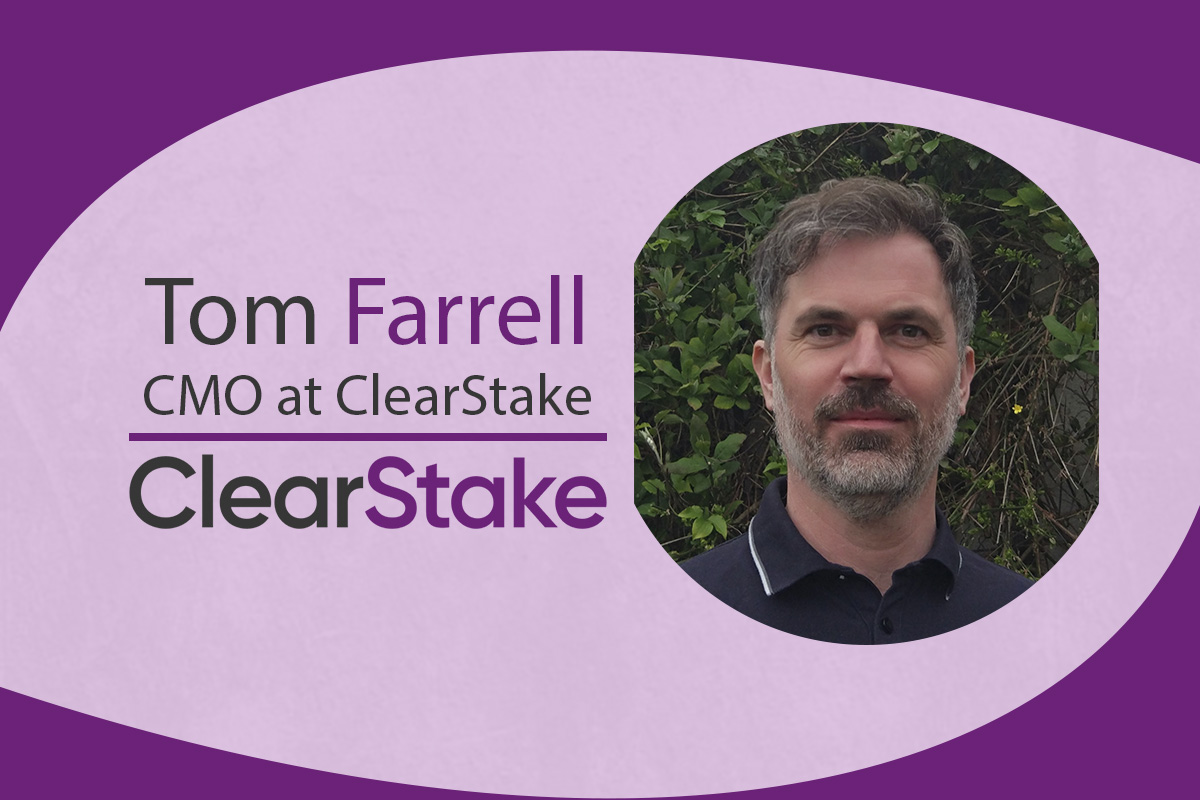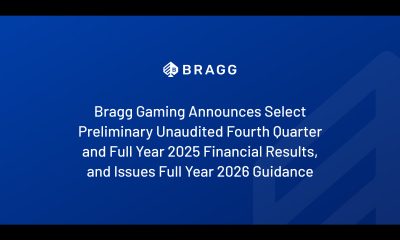Compliance Updates
Our UKGC consultation response: Failing to protect the vulnerable should not be the White Paper’s legacy

The dust has settled and the process is complete. The consultation on the proposed changes outlined in the UK Gambling White Paper is closed so now we just have to wait and see. Whilst we do so, we thought that in the spirit of transparency, we would share our own thoughts, more or less as they were communicated in our consultation response to the UK Gambling Commision.
Offering a real-time customer risk profiling tool, ClearStake’s focus was obviously on affordability checks. But then, much of the industry’s attention has been on this topic over the last few months. This is, to our mind, the single most important challenge facing the sector. Addressing it in the right way, a way that protects both punters and operators, will be the key to a sustainable, profitable future.
And with that goal uppermost in our mind, here is what we said:
1. Affordability checks must use real financial data
Certainly at the levels of spend proposed as meriting more thorough checks (£1,000 in a day or £2,000 over the space of three months), we don’t believe there is any real substitute for real financial data, by which we mean bank data. There is simply no other way of establishing whether a player can afford to lose this amount of money or not. Everything else – including data from credit reference agencies – is guesswork. We believe that the single greatest mistake that could be made during this process is not solving the problem of financial harm caused by gambling. That won’t be an issue if the government requires decisions to be made by operators in possession of a proper financial picture of their customers.
2. We can solve two problems at once
The consultation focused on affordability checks, but it would be almost perverse to ignore the wider reality at play here. Operators also have to perform anti money-laundering and source-of-funds (SOF) checks on their customers, and they do so by looking at bank statements. Given this is the case, it makes a lot of sense to us to effectively combine both these requirements within a single check.
3. At higher spend levels, it makes sense to keep customers connected
There has been a lot of talk about how frequently checks should take place, or to put that another way, whether it should be necessary to go back to a customer within six months or a year if they have already passed a check. To us, this rather misses the opportunity presented by Open Banking in particular. After the first check, assuming the player allows it, any checks in future can be entirely frictionless. The connection can remain in place and used when necessary (and only when necessary!) in order to make the ongoing compliance relationship as smooth as possible. We don’t expect ongoing connection to be mandated, but it should certainly be held up as best practice for all concerned.
4. Some of the proposed data points make little sense
When a solution that takes guesswork out of the equation is available, does it really make sense to suggest that postcodes and job titles are meaningful ways to determine an individual’s financial situation? We don’t think so. We believe that continuing to ‘lean in’ to data like this gives a misleading impression that it is good enough. It isn’t. Even as part of a broader decision-making process, it is very difficult to see where some of these data points fit in. You could say the same, of course, about missed loan repayments from three years ago.
5. The solution exists – why cobble together a new one?
Hovering behind the entire consultation process appears to be a not-quite-defined ‘solution’ to the affordability challenge. This is apparent in the various hints towards the use of CATO data (let’s just say it, even if the Commission aren’t willing to) and a hodge-podge of random data points in order to make affordability decisions, as part of a system that would have to be piloted in order to ensure a) it works and b) it doesn’t create data security issues.
Leaving aside the absurdity of asking us to judge the merits of an approach that hasn’t actually been defined, we would simply point out that in Open Banking, a solution to this challenge already exists. One that is already used by over 7 million people in the UK, by most UK operators to handle payments, and already used to handle affordability and SOF checks by forward-thinking operators. Why on earth are we re-inventing the wheel?
So there you have it. That’s what we told the consultation, albeit in language a little less colourful. I hope they listen.
Compliance Updates
Romanian Mayors Push to Ban Gambling Halls

A wave of Romanian mayors has followed the example set by Slatina’s mayor, who recently announced plans to eliminate gambling halls from his city under newly amended legislation. While the political signal is growing louder, the decisive vote belongs to local councils – and gambling operators are unlikely to retreat without resistance.
On February 26, the mayor of Vaslui, Lucian Braniște (PSD), said he would submit a draft decision to the Local Council seeking a ban on gambling halls within the city. He argued that gambling has become a serious social issue across many Romanian communities.
“In recent years, gambling has become a real problem in many communities in Romania. Beyond advertisements and colorful lights, behind these halls, there are too often stories of affected families, debts, addiction, and suffering,” the mayor said.
In Ploiești, mayor Mihai Polițeanu also voiced support for eliminating gambling venues and announced that he would table a similar proposal before the City Council, Economedia.ro reported. He described parts of the city centre as having turned into a “strange, underworld-like” area, suggesting that the proliferation of betting shops has contributed to urban degradation.
The mayors of Brăila and Rădăuți have likewise declared their intention to pursue restrictions on gambling activities.
The initiatives follow a recent amendment to gambling legislation adopted by the government, which now requires operators to obtain not only a national licence but also a local authorisation from the mayor’s office in the municipality, town, or commune where they operate. The new provision also empowers local councils to decide whether such activities may take place within their administrative boundaries.
While the political momentum appears to be building, the outcome will ultimately depend on council votes in each locality. Given the economic stakes and the industry’s established presence, legal and political battles are expected before any city can formally declare itself gambling-free.
The post Romanian Mayors Push to Ban Gambling Halls appeared first on Eastern European Gaming | Global iGaming & Tech Intelligence Hub.
Compliance Updates
Crypto.com Receives Limited Financial Institutions Licence in Europe

Crypto.com has announced another regulatory milestone: its EU MiCA regulated entity has received a Limited Financial Institutions licence from the Malta Financial Services Authority (MFSA). The approval allows the company to continue delivering its full suite of stablecoin services – qualifying as payment services – across the European Union, without disruption.
This additional licence is for the provision of services exclusively in relation to electronic money tokens (EMTs). The licence was acquired to navigate a complex regulatory landscape resulting in overlapping crypto asset services (MiCA) and payment services (PSD2). By securing the Limited Financial Institution Licence, Crypto.com has addressed both regulatory regimes ensuring full compliance across every aspect of its stablecoin operations.
Crypto.com’s Malta entity received MiCA approval in January 2025, allowing the company to passport services across the European Economic Area (EEA). Notably, Crypto.com already holds a full Electronic Money Institution (EMI) licence in Europe, making it one of the most comprehensively authorised platforms operating in the region.
“We are one of the most regulated crypto platforms in the world and receiving this licence proves, yet again, that we are committed to working with authorities to ensure the strongest compliance standards. Our stablecoin business and services remain a pivotal part of our European product offering so it was vital we secured this limited licence to continue providing seamless access to our institutional and retail customers,” said Eric Anziani, President and Chief Operating Officer at Crypto.com.
The limited Financial Institutions licence adds to Crypto.com’s expanding list of licences and registrations globally including, but not limited to, a UK Electronic Money Institution licence (FCA), a Major Payment Institution licence in Singapore (MAS), a Virtual Assets Service Provider licence in Dubai (VARA), U.S. Money Transmitter Licences, U.S. Designated Contracts Market (DCM) & Derivatives Clearing Organization (DCO) licences and recently conditional approval from the U.S. OCC for a National Trust Bank Charter.
The post Crypto.com Receives Limited Financial Institutions Licence in Europe appeared first on Eastern European Gaming | Global iGaming & Tech Intelligence Hub.
CertiIQ
CertiIQ Launched by Deion Williams and Julian Borg-Barthet to Streamline iGaming Compliance

CertiIQ , a RegTech platform created to offer a unified source of truth for certification, audit, and regulatory compliance, has announced its entry into the iGaming sector today.
, a RegTech platform created to offer a unified source of truth for certification, audit, and regulatory compliance, has announced its entry into the iGaming sector today.
CertiIQ consolidates test reports, monitors certification and audit expiration dates, and facilitates secure collaboration among stakeholders. It also provides live RTP monitoring, asset integrity verification through API, workflows for change management, and comparative regulatory gap analysis for businesses entering new markets.
consolidates test reports, monitors certification and audit expiration dates, and facilitates secure collaboration among stakeholders. It also provides live RTP monitoring, asset integrity verification through API, workflows for change management, and comparative regulatory gap analysis for businesses entering new markets.
It has also been designed to guarantee that reports are automatically incorporated into client workspaces, eliminating manual transfers and minimizing operational friction, and has been created to facilitate workflows with prominent labs such as GLI, BMM, RiskCherry, Gaming Associates, and eCOGRA.
Leading this innovative platform are seasoned professionals Deion Williams and Julian Borg-Barthet, who collectively bring over 30 years of combined expertise from prominent testing laboratories, operators, and suppliers.
“Building something that we wish we had when we first got started, is a proud moment for us” said Julian Borg-Barthet, Co-Founder of CertiIQ . “The enthusiastic feedback we’ve received so far has been a testament that we’ve been on the right track.”
. “The enthusiastic feedback we’ve received so far has been a testament that we’ve been on the right track.”
Launching in early access this March, CertiIQ is welcoming its initial customers while progressing toward a live release and is eager to partner with early adopters as regulatory challenges increase across all regulated iGaming markets worldwide.
is welcoming its initial customers while progressing toward a live release and is eager to partner with early adopters as regulatory challenges increase across all regulated iGaming markets worldwide.
The post CertiIQ Launched by Deion Williams and Julian Borg-Barthet to Streamline iGaming Compliance appeared first on Eastern European Gaming | Global iGaming & Tech Intelligence Hub.
-

 Adjusted EBITDA7 days ago
Adjusted EBITDA7 days agoBragg Gaming Announces Select Preliminary Unaudited Fourth Quarter and Full Year 2025 Financial Results, and Issues Full Year 2026 Guidance
-

 Bagley-Keene Act6 days ago
Bagley-Keene Act6 days agoCalifornia Gambling Control Commission Issues Critical Guidance on Stakeholder Communications and Ex Parte Rules
-

 iGaming6 days ago
iGaming6 days agoPRAGMATIC PLAY UNEARTHS PROGRESSIVE MULTIPLIERS IN ROLLING IN TREASURES
-

 Comatel5 days ago
Comatel5 days agoCOMATEL CELEBRARÁ UNA FIESTA PARA CIENTOS DE OPERADORES TRAS FINALIZAR EL PRIMER DÍA DE LA FERIA ESPAÑOLA, INTERAZAR
-

 Betty Casino7 days ago
Betty Casino7 days agoBetty Casino Announces Partnerships with Toronto FC and Toronto Argonauts
-

 Africa6 days ago
Africa6 days agoGroove Targets Africa’s iGaming Boom at SiGMA Cape Town 2026
-

 Booming Games6 days ago
Booming Games6 days agoBooming Games Introduces Instastrike, the Latest Diamond Hits Trio
-

 Australia7 days ago
Australia7 days agoTabcorp Pays $158,400 Penalty for Taking Illegal In-Play Sports Bets































